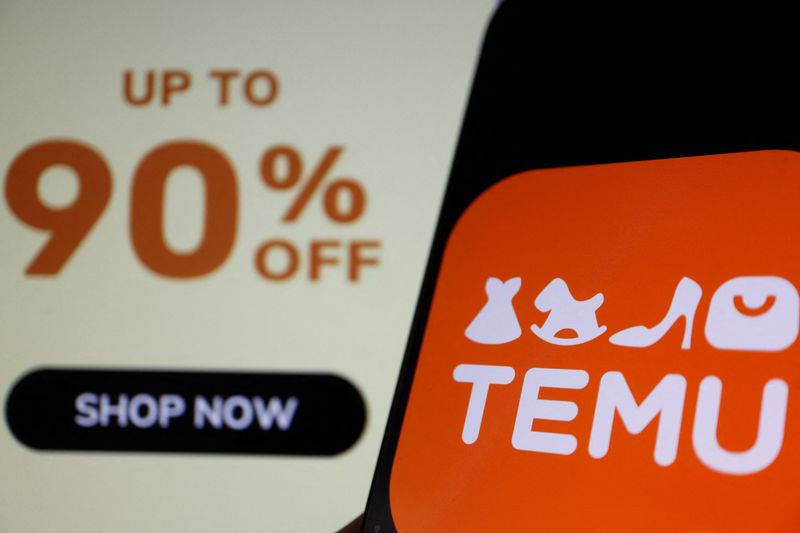JAKARTA (Reuters) -Indonesia has requested Alphabet (NASDAQ:)’s Google and Apple (NASDAQ:) to dam Chinese language quick vogue e-commerce agency Temu of their software shops within the nation so it can’t be downloaded, a minister stated on Friday.
The transfer was supposed to pre-emptively defend the nation’s small and medium-sized companies in opposition to low-cost merchandise being provided by PDD Holdings’ Temu, communications minister Budi Arie Setiadi instructed Reuters, though authorities haven’t discovered any transactions but by its residents on the platform.
Temu’s fast progress has triggered scrutiny over its low-cost enterprise mannequin of sending parcels to clients from China by a number of international locations.
Temu’s enterprise mannequin, which connects customers instantly with factories in China to be able to considerably cut back costs, is “unhealthy competition,” Budi stated.
“We’re not here to protect e-commerce, but we protect small and medium enterprises. There are millions we must protect,” the minister stated.
Jakarta will even block any funding by Temu in native e-commerce if it makes such a transfer, Budi stated, including he has not heard of any such plan.
Budi additionally stated the federal government plans to request an analogous block for Chinese language buying service Shein.
Temu, Apple and Google didn’t reply to requests to remark.
Shein stated they don’t have operations in Indonesia, an organization spokeperson stated.
Indonesia compelled China’s ByteDance social media platform TikTok to shut its e-commerce service within the nation final yr to guard native retailers and customers’ information.
Months later, TikTok agreed to purchase a majority stake in Indonesian tech conglomerate GoTo’s e-commerce unit to be able to keep in Southeast Asia’s largest e-commerce market.

On Tuesday, Indonesian homegrown e-commerce Bukalapak.com denied experiences about an acquisition plan by Temu.
Indonesia’s e-commerce trade is about to broaden to about $160 billion by 2030 from $62 billion in 2023, in accordance with a report by Google, Singapore state investor Temasek Holdings and consultancy Bain & Co.




